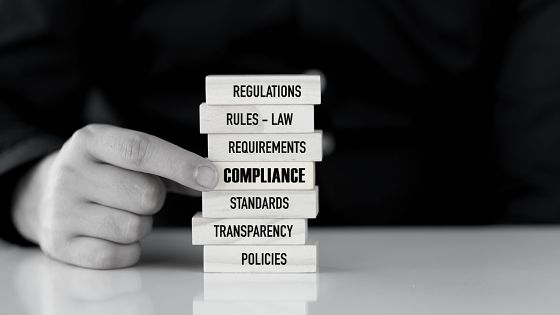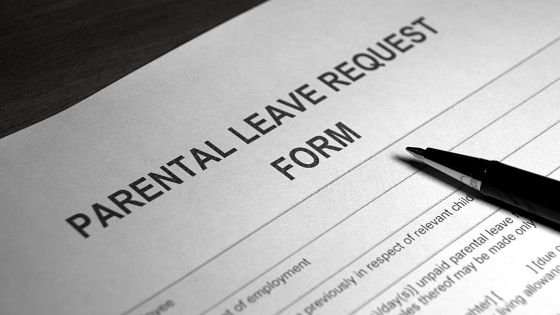Category: Legal
The Importance of Trust Deeds and How to Handle Them in 2024
by Emma Joyce | May 7, 2024 | Accounting Money and Finance, Learn Magazine, Legal | 0 |
Trust deeds serve as crucial legal contracts that ensure transparency, security, and compliance in transactions. They define rights and responsibilities, mitigate risks, and offer flexibility for customization. Furthermore, trust deeds are adapting to technological advancements, enhancing efficiency and security. In a dynamic financial environment, understanding and effectively managing trust deeds are essential for stakeholders to navigate transactions confidently and securely.
Read MoreLegal obligations When Using AI in Your business
by Rolf Howard | May 2, 2024 | AI Tools, Learn Magazine, Legal | 0 |
In a business world that is ever changing with the increasing use of automation, Artificial Intelligence is rapidly becoming the fastest way to streamline your business needs. Using AI can reduce costs, increase productivity, and enhance your ability to communicate effectively with your customers. However, there are legal implications to using AI that are necessary to understand so that your company’s use of AI is within legal and ethical bounds.
Read MoreThe Essential Checklist for Launching Your Online Business in Australia
by Ian Aldridge | Apr 9, 2024 | Being Online, Learn Magazine, Legal, Starting in Business | 0 |
Here’s a guide that not only walks you through each step but also emphasises the importance of protecting your brand right from the start
Read More9 Reasons Why Filing a Trademark Application for Your Business Name is a Game-Changer
by Ian Aldridge | Feb 16, 2024 | Learn Magazine, Legal | 0 |
How can you safeguard your business name from copycats? The answer lies in trademarking. In this guide, we’ll give you 10 reasons why filing a trademark application for your business name is a strategic move.
Read MoreWhat to Expect from Settlement Negotiations
by Rolf Howard | Dec 29, 2023 | Learn Magazine, Legal, Process and Procedures | 0 |
Being involved in any sort of legal dispute can be overwhelming and stress inducing. People are often particularly worried about having to go to court and appear in front of a Judge. And, giving testimony can be considered a harrowing experience. While going to court is always an option, settlement negotiations can help you avoid expensive and stressful litigation.
Read MoreThe Crucial Role of Legally Drafted Terms and Conditions for Your Business
by Ian Aldridge | Dec 21, 2023 | Learn Magazine, Legal | 0 |
In this article, we will delve into the importance of having well-crafted terms and conditions for your business, highlighting the benefits they bring and the potential consequences of neglecting them.
Read MoreAre codes of practice legally binding?
by Rolf Howard | Nov 22, 2023 | Learn Magazine, Legal | 0 |
Codes of practice are not simply nice business behaviours that we should all demonstrate, although they are that too. Workplace codes of practice are the minimum standard practical guides that help employers and workers comply with the work health and safety (WHS) laws in Australia. They cover various aspects of workplace safety, such as hazards and chemicals management, and the safe performance of specific tasks. But are codes of practice legally binding?
Read More8 Important Benefits Of 508 compliance Every Businessman Should Know
by Emilie Brown | Oct 27, 2023 | Learn Magazine, Legal, Process and Procedures, Regulations | 0 |
This article talks about the benefits of following 508 compliance guidelines for every business, and making it accessible for everyone.
Read MorePaid Parental Leave Changes 2023
by Jess Gleeson | Oct 16, 2023 | Learn Magazine, Legal, People and HR | 0 |
The Australian government has announced plans to extend the paid parental leave from 18 weeks to 26 weeks over the next four years. This move is aimed at closing the gender pay gap, increasing women’s participation in the workforce, and providing families with more flexibility during important stages of their children’s development. Learn about what changes are coming, and what they mean for Employers and Employees in this article.
Read MoreFixed Term Contracts: What They Mean For Employers
by Jess Gleeson | Oct 13, 2023 | Learn Magazine, Legal, People and HR | 0 |
Does your business use fixed term contracts? Starting December 2023, alterations to how these agreements are used will take effect. These changes arise from the notion that recurrent or continuous fixed-term contracts fail to provide job security. Learn what these changes mean for your business in our article.
Read MoreCasual Conversion 101
by Jess Gleeson | Oct 11, 2023 | Learn Magazine, Legal, People and HR | 0 |
Do you employ casual employees in your business? If so, you should be aware of what Casual Conversion is, and how your business can remain compliant when employing casuals.
Read MoreHow to Check if a Name is Trademarked in Australia: A Comprehensive Guide
by Ian Aldridge | Aug 29, 2023 | Branding, Learn Magazine, Legal | 0 |
Are you planning to use a name for your business, product, or service in Australia? Before you start using the name, you need to make sure it is not already trademarked by someone else or otherwise you may be inadvertently committing trademark infringement.
Read More
Latest Articles
From the Connect Directory
From the Marketplace
-
 Managing Your Business Mindset eBook - Clive Enever
$9.95
Managing Your Business Mindset eBook - Clive Enever
$9.95
-
 Customers - The Heart of Every Business eBook - Clive Enever
$9.95
Customers - The Heart of Every Business eBook - Clive Enever
$9.95
-
 Create A Winning Business Built On The People You Hire eBook - Clive Enever
$9.95
Create A Winning Business Built On The People You Hire eBook - Clive Enever
$9.95
-
 Sales Without The Hard Sell eBook - Clive Enever
$9.95
Sales Without The Hard Sell eBook - Clive Enever
$9.95
-
 Copywriting Frameworks Toolkit - eBook
$9.97
Copywriting Frameworks Toolkit - eBook
$9.97























